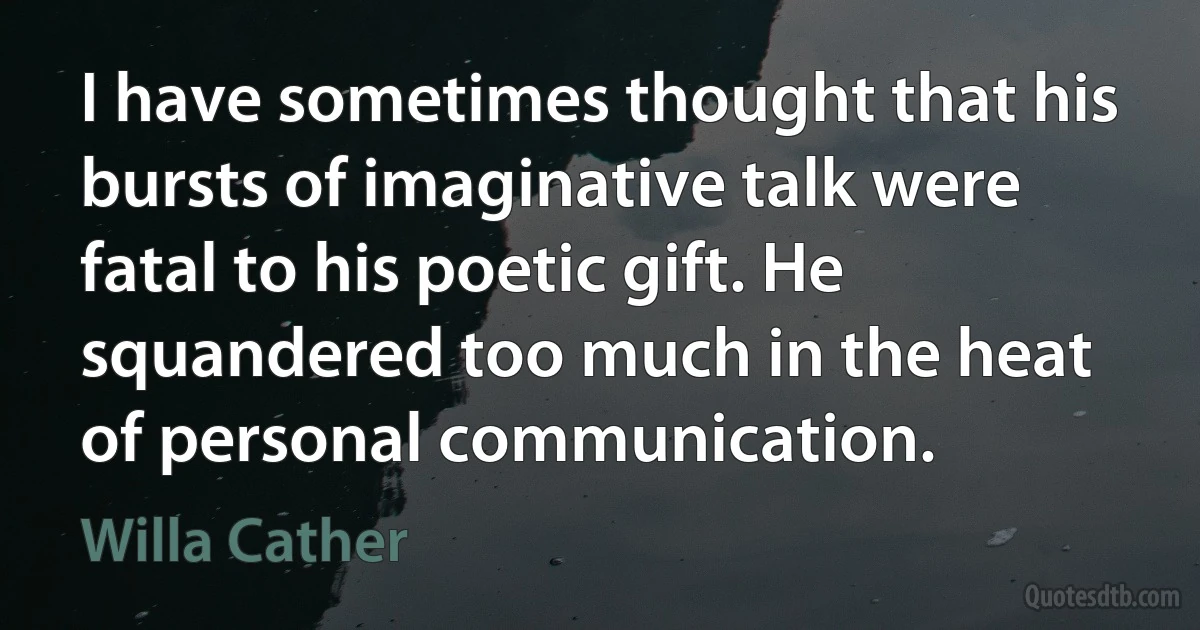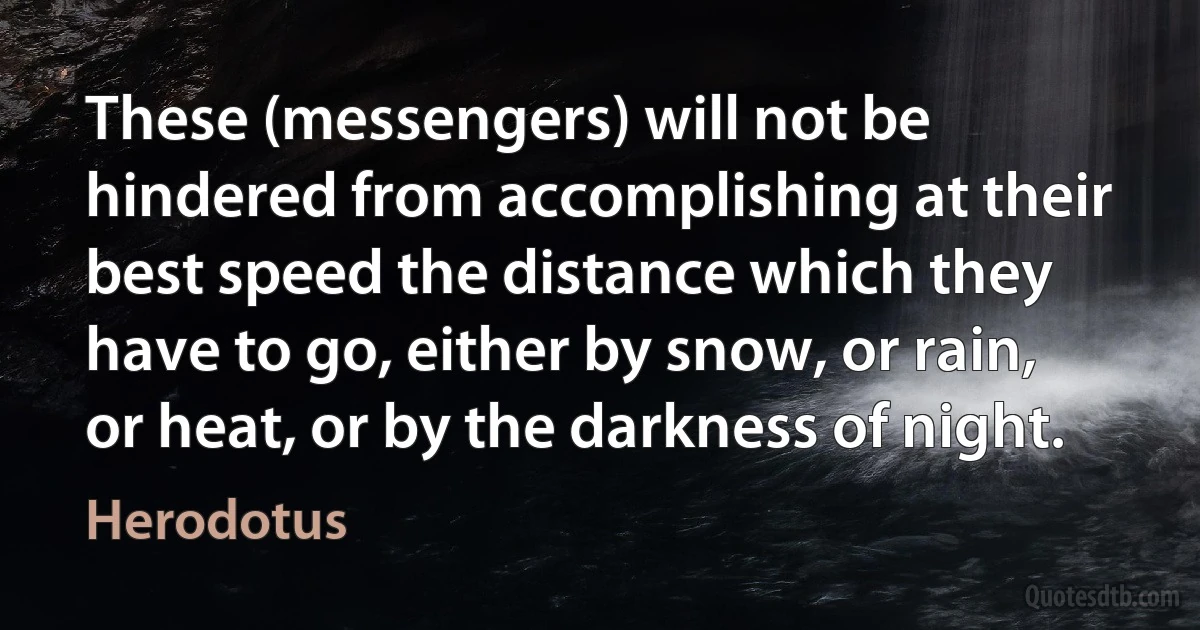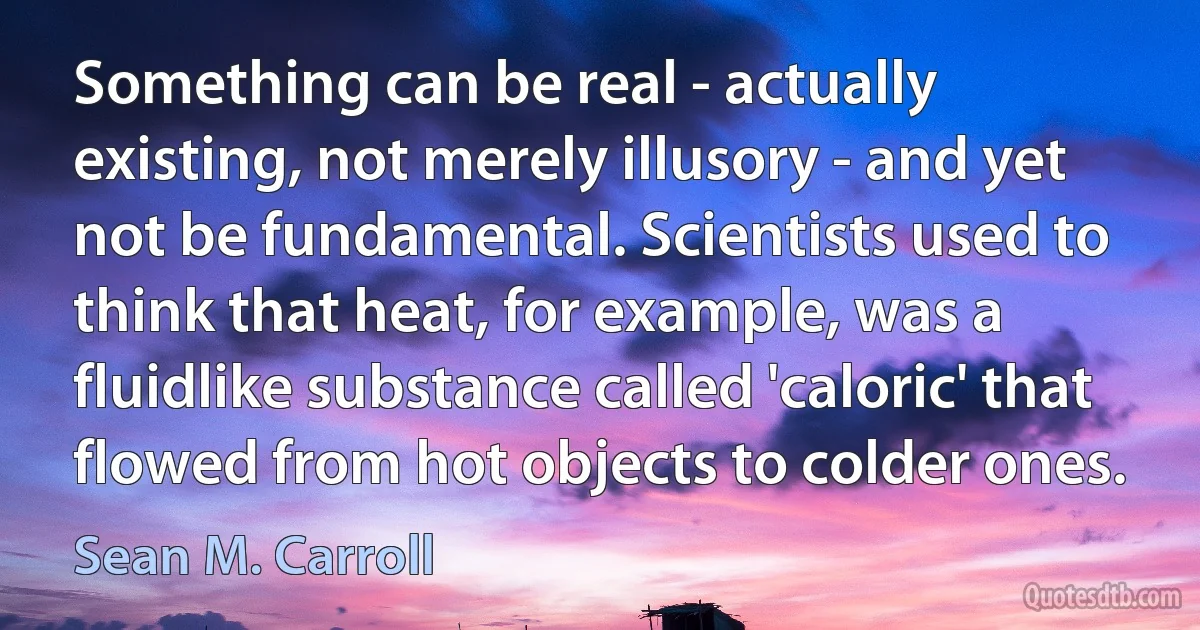Heat Quotes - page 21
There is nothing so absurd or ridiculous that has not at some time been said by some philosopher. Fontenelle says he would undertake to persuade the whole public of readers to believe that the sun was neither the cause of light or heat, if he could only get six philosophers on his side.

Oliver Goldsmith
What if by such crime you sought both of heavens boundaries, that to which the Sun looks when he is sent forth from the eastern hinge and that to which he gazes as he sinks from his Iberian gate, and those lands he touches from afar with slanting ray, lands the North Wind chills or the moist South warms with his heat?

Statius
A spectacular anomaly came up with the hydrides of the nonmetals-an ugly bunch, about as inimical to life as one could get. Arsenic and antimony hydrides were very poisonous and smelly; silicon and phosphorous hydrides were spontaneously inflammable. I had made in my lab the hydrides of sulfur (H2S), selenium (H2Se), and tellurium (H2Te), all Group VI elements, all dangerous and vile-smelling gases. The hydride of oxygen, the first Group VI element, one might predict by analogy, would be a foul-smelling, poisonous, inflammable gas, too, condensing to a nasty liquid around −100°C. And instead it was water, H2O-stable, potable, odorless, benign, and with a host of special, indeed unique properties (its expansion when frozen, its great heat capacity, its capacity as an ionizing solvent, etc.) which made it indispensable to our watery planet, indispensable to life itself. What made it such an anomaly? [...].

Oliver Sacks
The busy chatter of the heat
Shrilled like a parakeet;
And shuddering at the noonday light
The dust lay dead and whiteAs powder on a mummy's face,
Or fawned with simian grace
Round booths with many a hard bright toy
And wooden brittle joy:The cap and bells of Time the Clown
That, jangling, whistled down
Young cherubs hidden in the guise
Of every bird that flies;And star-bright masks for youth to wear,
Lest any dream that fare
- Bright pilgrim - past our ken, should see
Hints of Reality.

Edith Sitwell
Sprinting from one shady patch to another to escape the blistering heat of the sun on my journey to school
Felling the massacre on that fearsome night when most of my family was slaughtered
racing trains for fun
outrunning the police when I was caught stealing in Shahdra
leaving every one behind in my first race as an army jawan so that I could get an extra glass of milk
surging past my competitors in Tokyo when I was declared Asia's best athlete
Running in Pakistan and being hailed as "The Flying Sikh."

Milkha Singh
I experienced the heat when I was playing for Madrid. If we went to places like Sevilla early on in the season it was unbearable. Usually you can feel it on pre-season tours in places like Kuala Lumpur, Singapore, Jakarta. The humidity levels are unreal, but this is different, the first game of the World Cup.

Steve McManaman
If we describe... heat... the air... it's this temperature, this pressure. That's as much as we can say... People [from the future] will say, "I just can't believe they didn't realize that there was this detail and all these molecules that were bouncing around, and that they could make use of that."

Stephen Wolfram
If it be urged that the action of the potato is chemical and mechanical only, and that it is due to the chemical and mechanical effects of light and heat, the answer would seem to lie in an inquiry whether every sensation is not chemical and mechanical in its operation? whether those things which we deem most purely spiritual are anything but disturbances of equilibrium in an infinite series of levers, beginning with those that are too small for microscopic detection, and going up to the human arm and the appliances which it makes use of? whether there be not a molecular action of thought, whence a dynamical theory of the passions shall be deducible? Whether strictly speaking we should not ask what kind of levers a man is made of rather than what is his temperament? How are they balanced? How much of such and such will it take to weigh them down so as to make him do so and so?

Samuel Butler (novelist)
Past the flannel plains and the blacktop graphs and skylines of canted rust, and past the tobacco-brown river overhung with weeping trees and coins of sunlight through them on the water downriver, to the place beyond the windbreak, where untilled fields simmer shrilly in the a. m. heat: shattercane, lamb's-quarter, cutgrass, sawbrier, nutgrass, jimsonweed, wild mint, dandelion, foxtail, muscatine, spinecabbage, goldenrod, creeping charlie, butter-print, nightshade, ragweed, wild oat, vetch, butcher grass, invaginate volunteer beans, all heads gently nodding in a morning breeze like a mother's soft hand on your cheek.

David Foster Wallace
To my ears, jazz sounds better in warm weather and after the sun has gone down. While I will listen to some of my favorite jazz records in cooler weather, it's the warmer nights that really make them come alive. Something about those sounds and the heat of the night really makes it happen for me.

Henry Rollins



